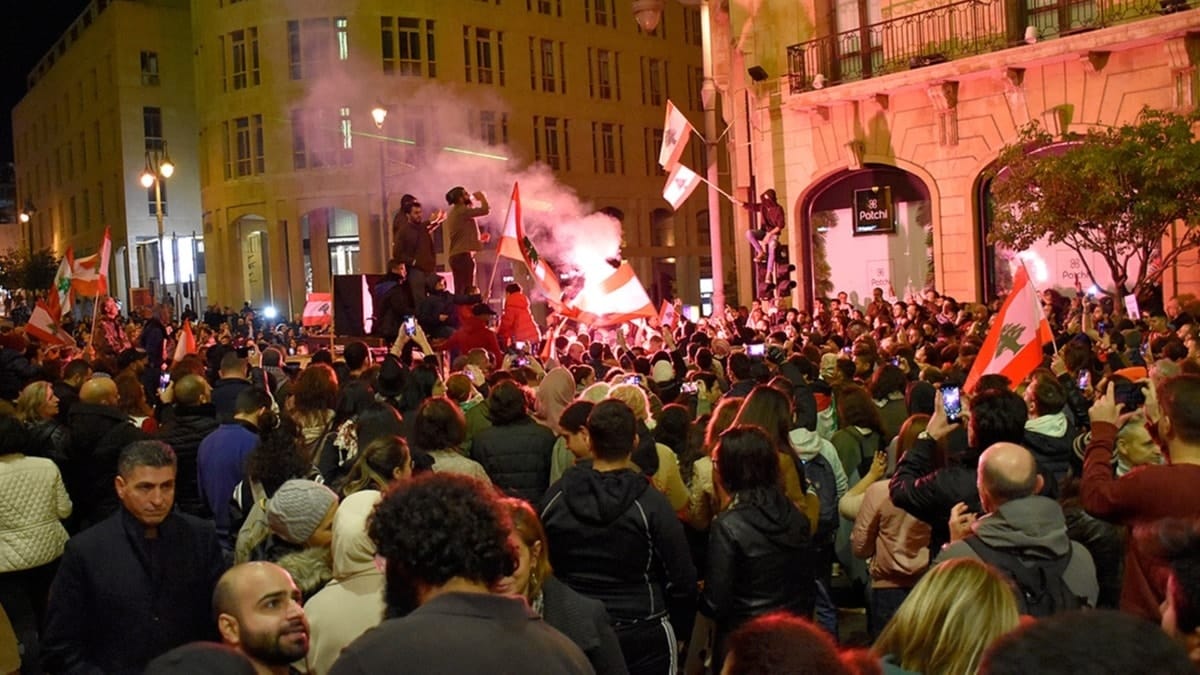9730
0
Mess Continues in Lebanon
In Lebanon, which is struggling with a great economic crisis and where people are on the streets, mess continues.

Yazar: Gülşah Aksoy
Yayınlanma: 1 Temmuz 2020 21:47
Güncellenme: 3 Mart 2026 02:46
Mess Continues in Lebanon
In Lebanon, which is struggling with a great economic crisis and where people are on the streets, mess continues. Lebanon experienced a bloody civil war between 1975 and 1990, causing 150,000 deaths and 1 million migration. In Lebanon, where the effects of the civil war still continue, the biggest economic crisis has taken place since those years. The Lebanese people are on the streets almost every day to protest the government, which they say is causing an economic crisis. While demonstrations are continuing in the country, the government's efforts to cope with the crisis continue. "Some people want Lebanon to collapse economically," Lebanese Prime Minister Hassan Diyab said at a meeting of the cabinet. Expressing his regret about this issue, Diyab said: "There are many countries whose national currency has lost value against the dollar. The citizens in these countries have put their political differences aside and opposed the pressure of the dollar. They sold dollars to support their country's currency and showed their national loyalty. Lebanon ' what happened is the opposite of that. " Hassan Diyab stated that the burden of more than 1 million refugees in Lebanon was too heavy for them and that they could not bear this economic burden. In a statement he made in the past months, Prime Minister Diyab said that public debt in Lebanon has exceeded $ 90 billion. Government officials announced that they had begun to negotiate with the International Monetary Fund for a $ 10 billion loan. Speaking at the meeting, Minister of Economy and Trade Raul Name said that the price of bread will increase by 33 percent, according to local media reports in Lebanon. Accordingly, it was learned that 900 grams of partial state-supported bread will be increased from 1500 liras to 2000 liras. The people, who started protests after hearing the hike decision on bread, closed some roads in the capital, Beirut and Sayda. Many civilians were injured as a result of the military's intervention in roadblocking.Lebanese pound loses value every day
Although the Central Bank keeps the rate stable, the local currency Lebanese lira is losing value day by day. According to the official rate, 1 US dollar is equivalent to 1515 Lebanese pounds. However, yesterday, the dollar was traded at 8 thousand Lebanese lira on the black market. The minimum wage in the country is 675 thousand Lebanese pounds. This fee corresponded to about $ 450 at the official rate of the Central Bank, which has not changed since 1992. However, the upward black market exchange rate is equivalent to $ 84 today. The fact that even basic foodstuffs are based on exchange-oriented imports on the black market causes the purchasing power of the public to decrease day by day. In the country, beef sold for 15 thousand lira per kilogram has increased to 36 thousand, and sheep meat from 30 thousand has increased to 50 thousand.İLGİLİ HABERLER





European stocks soared and focus shifted to German retail sales after Powell's speech!

Forex Signal For TRY/USD: Inflation Slowdown in November.

Forex Signal For GBP/USD: Bullish Trend Still Not Breaking While Recovery Continues.

Forex Signal For EUR/USD: Starry US Data Points to Higher Fed Increases.

Forex Signal For BTC/USD: Downside Continues as Bitcoin Recovery Moves Less.
En Popüler Haberler
Yorum Yap
Yorumlar
Henüz yorum yapan yok! İlk yorumu siz yapın...